Practical for Your Practice Podcast
Podcast Episodes
Practical for Your Practice, Season 7
Listen to Episode 9, Season 7: Don't Tap Dance Around Maternal Mental Health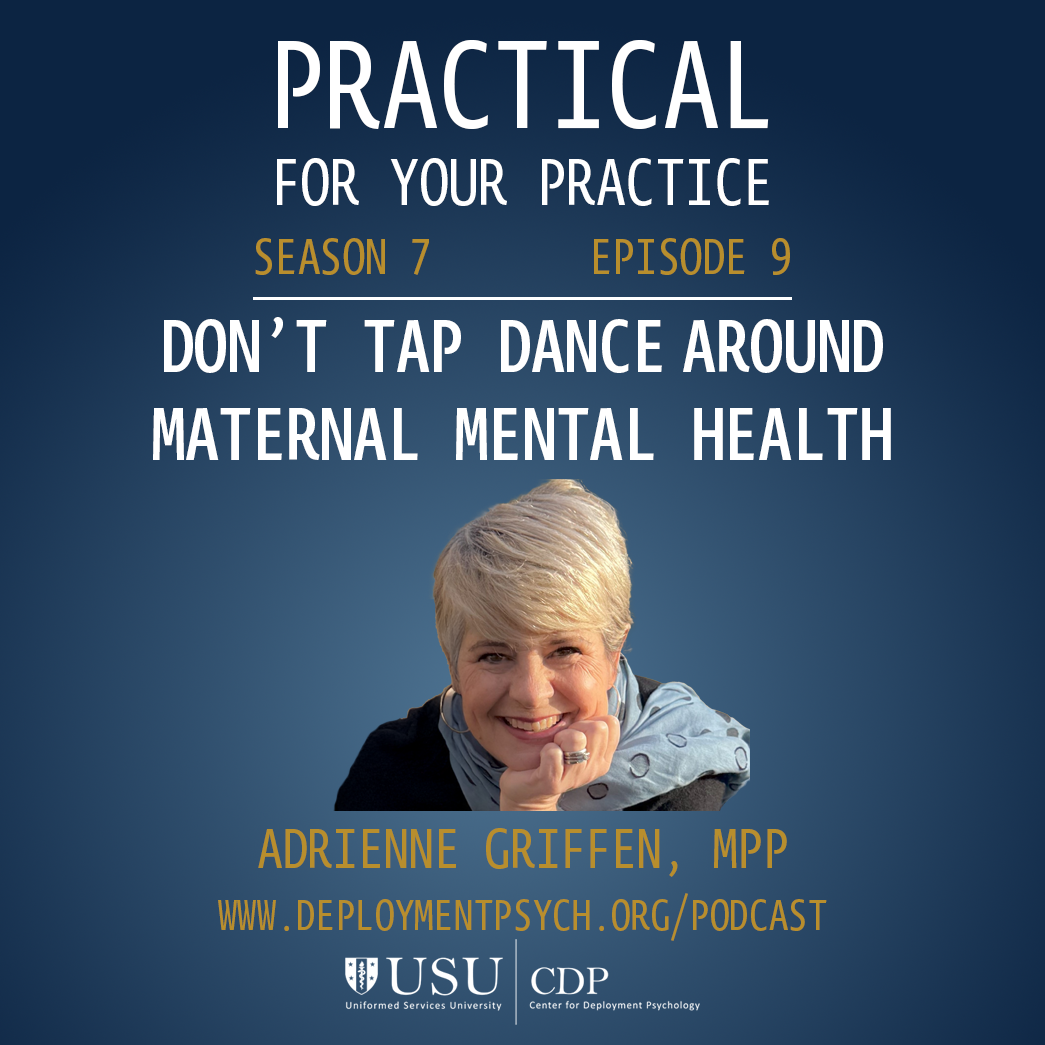 Guests: Adrienne Griffen, MPP
Guests: Adrienne Griffen, MPP
In this episode, hosts Jenna Ermold and Carin Lefkowitz welcome Adrienne Griffen, an "accidental advocate" and Executive Director of the Maternal Mental Health Leadership Alliance (MMHLA). A Naval Academy graduate and former intelligence officer, Adrienne shares her powerful personal journey of navigating postpartum depression while holding high-level security clearances – and why it took six months to finally get the help she needed. The conversation dives deep into the unique "triple threat" of stigma facing military women: the pressure of the warrior ethos, the upheaval of the military lifestyle, and the vulnerabilities of the perinatal period. Adrienne adds to our collection of EBP “sins” and provides practical actionable intel and valuable resources.
Listen to Episode 8, Season 7: Calling the Thoughts Out From the Shadows - ERP for OCD 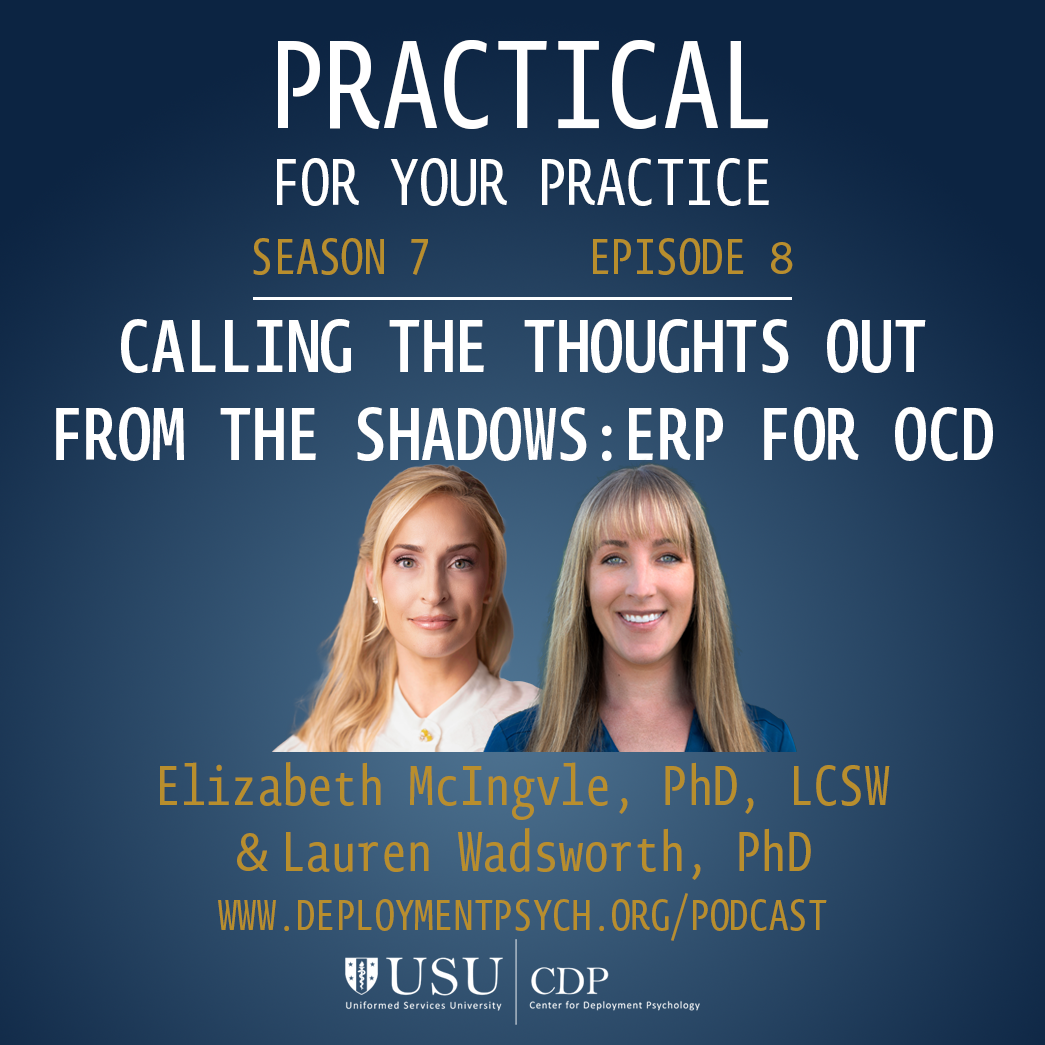 Guests: Drs. Elizabeth McIngvale & Lauren Wadsworth
Guests: Drs. Elizabeth McIngvale & Lauren Wadsworth
Obsessive-Compulsive Disorder (OCD) is common, disabling and frequently misunderstood in clinical practice. In this episode of Practical for Your Practice, hosts Dr. Jenna Ermold and Kevin Holloway are joined by Dr. Elizabeth McIngvale and Dr. Lauren Wadsworth, two nationally recognized leaders in OCD treatment and training, for a deep dive into Exposure and Response Prevention (ERP), the gold-standard treatment for OCD. Together, they unpack why OCD is so often misdiagnosed, mistreated, or unintentionally reinforced, even by well-intentioned clinicians, and how ERP works to interrupt the obsession–compulsion cycle by targeting avoidance, ritualizing, and intolerance of uncertainty.
Listen to Episode 7, Season 7: Thanks, Jane! Toiling With Terminations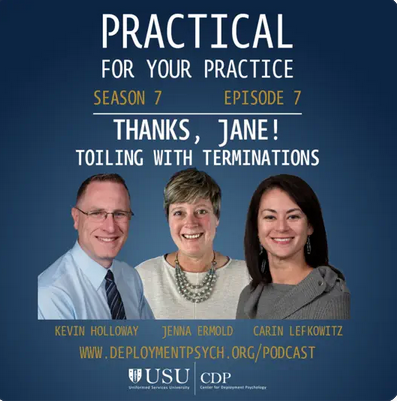 Hosts: Drs. Jenna Ermold, Kevin Holloway & Carin Lefkowitz
Hosts: Drs. Jenna Ermold, Kevin Holloway & Carin Lefkowitz
Terminations in therapy should be expected, but they often catch us – patients and providers – off-guard. What is the best way to talk about termination? What if it’s unexpected? Is “termination” even the right word?
This episode finds your hosts inspired by two listeners, one of whom asked us to muse on the topic of ending the therapy relationship. And what better way to terminate 2025 than by exploring this topic?
Thanks, Jane!
Listen to Episode 6, Season 7: Not Just a Weird Hobby: Tech Innovations for Suicide Prevention 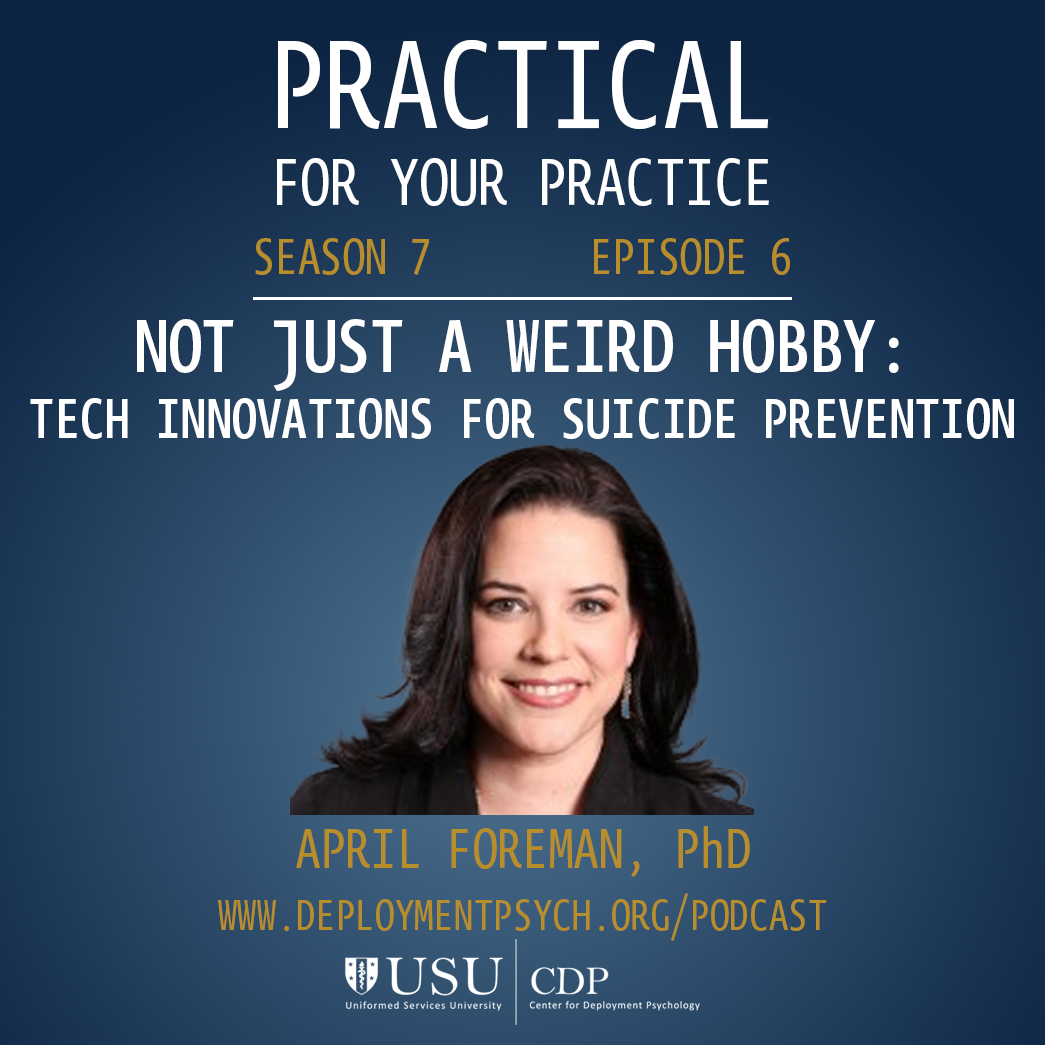 Guest: Dr. April Foreman
Guest: Dr. April Foreman
Stop dodging those complex questions about AI and mental health! Join Drs. Kevin Holloway and Jenna Ermold as they engage with the brilliant Dr. April Foreman, Director of Technology and Innovation at the Veterans Crisis Line, for a conversation that proves tech is no longer optional—it's essential. Dr. Foreman pulls back the curtain on the sobering reality: the demand for evidence-based suicide prevention care is simply too vast for traditional methods to meet. Discover the shocking "sin" of EBP practice we might all be committing, learn how simple AI tools (like automated scribing) can boost your clinical fidelity, and find out what happens when a clinical expert "red-teams" popular chatbots for suicidality. Get the insights you need to confidently apply your ethical framework to the future of care and conquer your fear of the algorithmic boogeyman!
Listen to Episode 5, Season 7: Beyond NPD Criteria: Narcissistic Abuse, Trauma, and 'Snakes in Suits' 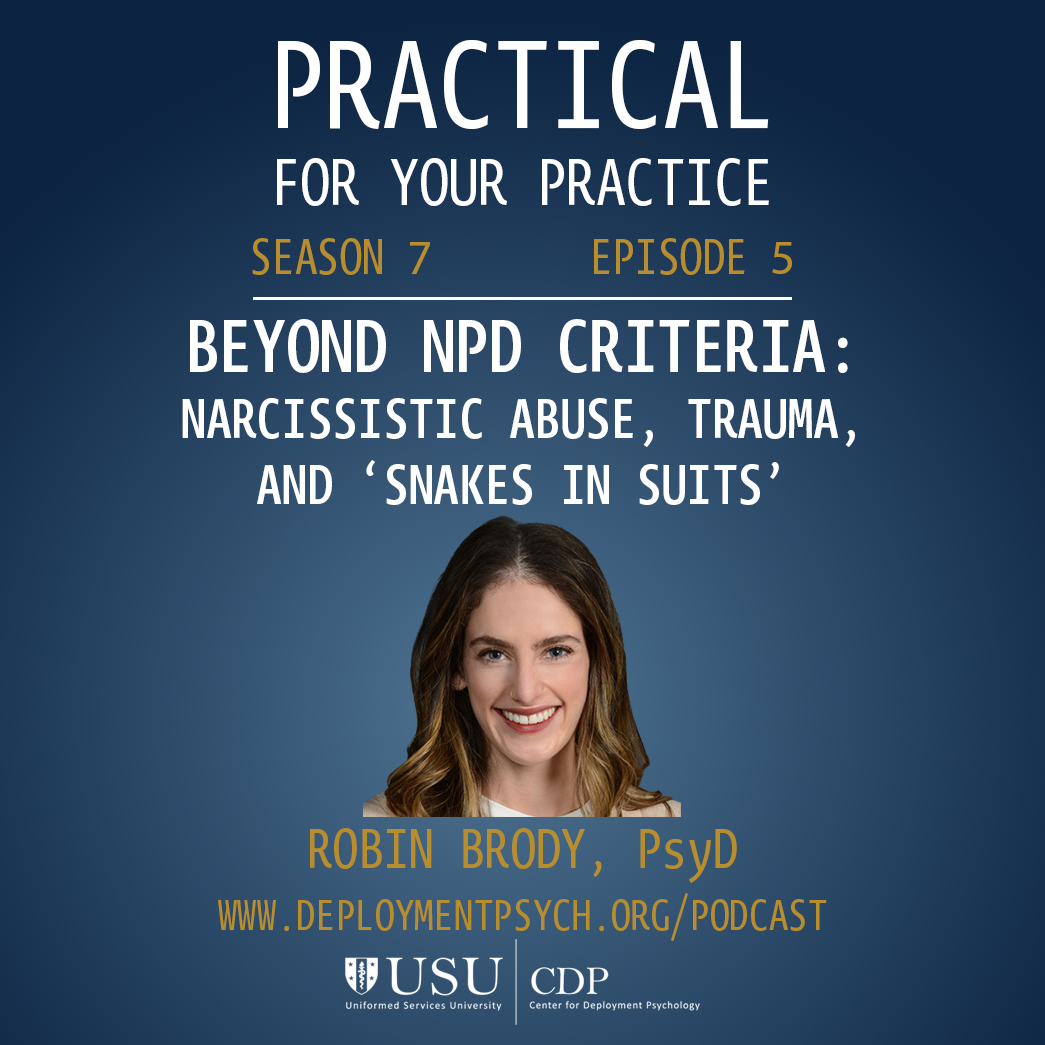 Guest: Dr. Robin Brody
Guest: Dr. Robin Brody
Dr. Robin Brody is back to tackle a critical gap in clinical training: narcissism and its devastating impact. We start with defining narcissism by its signature trait, entitlement, and exploring the clinical distinctions between grandiose, vulnerable, and malignant subtypes. Then we dive into the flip side: narcissistic abuse. Learn to spot the confusing dynamics clients face, including performative empathy, denial of reality (often called gaslighting), trauma bonding through intermittent reinforcement, and the predictable cycle of idealization, devaluing, discard, and hoovering. Most crucially, we discuss the "sin" of inadequate training and the risk of how applying standard components of evidence-based treatment can fail, even placing survivors in danger.
Listen to Episode 4, Season 7: Mama Mia, Peachy Keen! Stress as a Team Sport 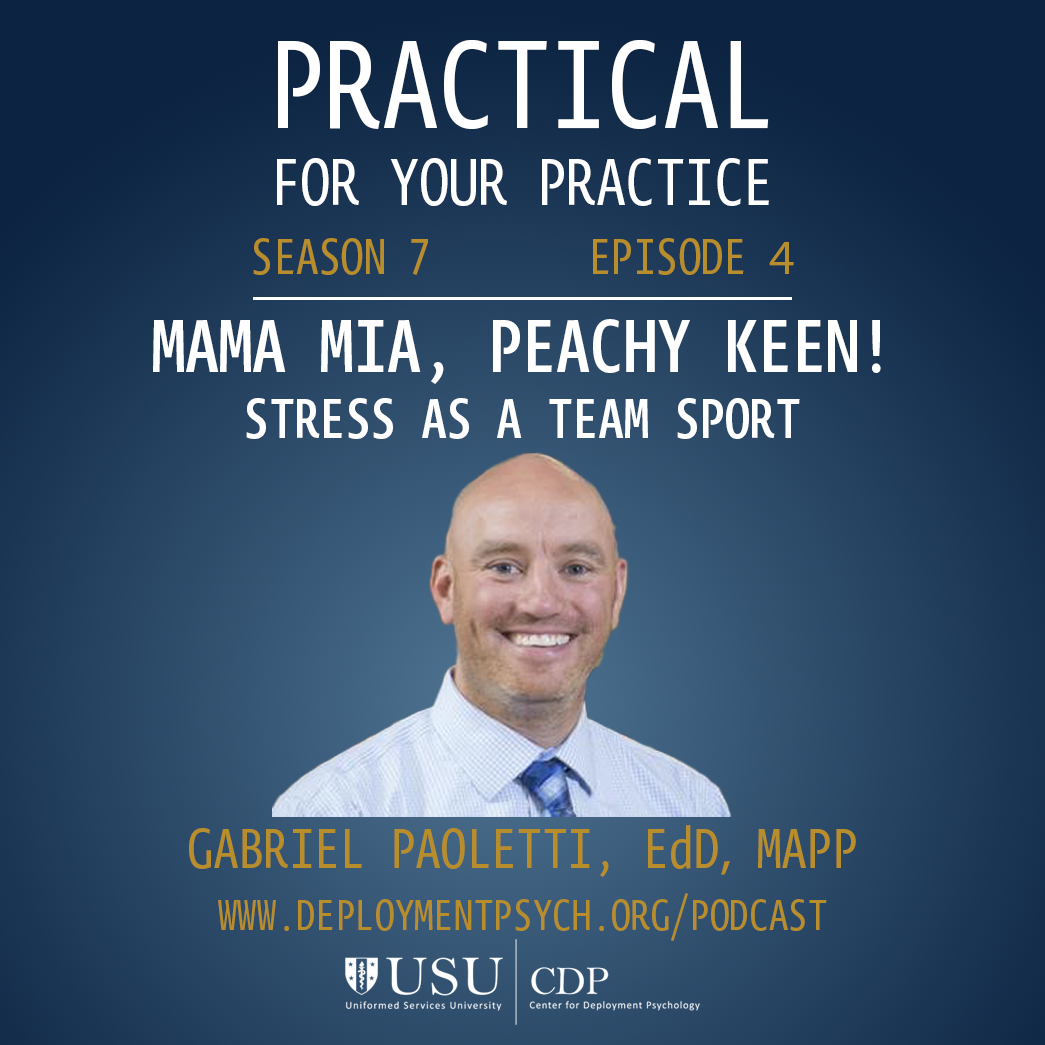 Guest: Dr. Gabriel Paoletti
Guest: Dr. Gabriel Paoletti
Feeling stressed? You’re not alone! Hosts Jenna Ermold and Carin Lefkowitz welcome back the always-animated Dr. Gabriel Paoletti for a refreshingly human take on stress. From cheesesteaks to “mamma mia” stress cues, this conversation dives into how we can rethink stress, not as something to eliminate, but as a signal that something meaningful is at stake. Dr. Paoletti breaks down how stress can actually help performance, especially when we approach it as a shared experience, a “team sport”, instead of a solo battle. Tune in for practical strategies (and a few laughs) on how to build your “stress team,” use humor to stay grounded, and create simple cues that help you, and those around you, catch stress before it catches you.
Listen to Episode 3, Season 7: I'm Not Here to Take Your Guns Away: Firearm Safety with Patients 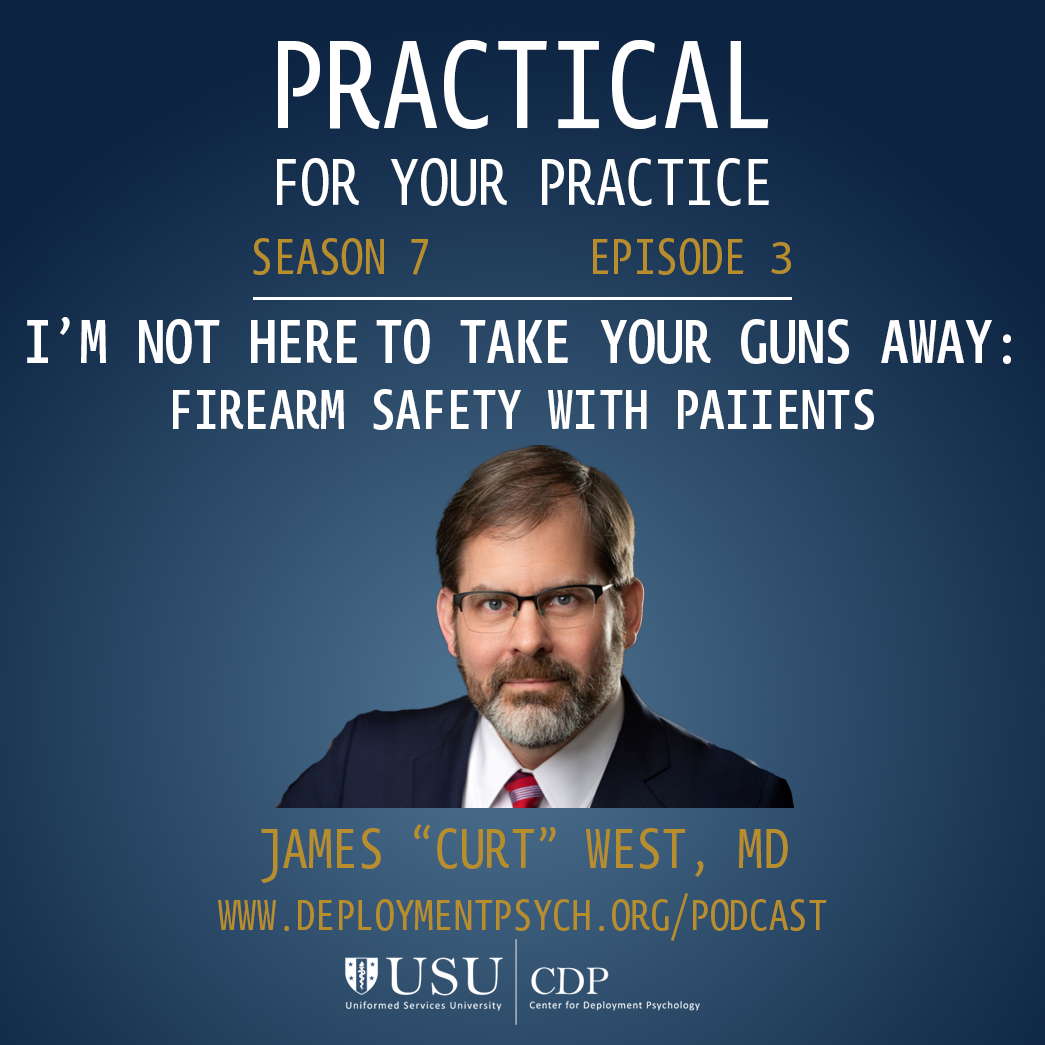 Guest: Dr. James "Curt" West
Guest: Dr. James "Curt" West
Suicide prevention isn’t only about assessing current risk for self-harm. It’s also about recognizing that we can’t predict if and when that risk will increase. Patients spend most of their lives outside of our office, and an unexpected crisis can increase their risk of self-directed violence exponentially. The risk may be especially heightened for firearm owners, who have immediate access to a highly lethal method of injury. Fortunately, that risk can be reduced if we simply put a few moments’ delay between impulse and action in the form of secure firearm storage. Yet many clinicians, including our hosts, shy away from that conversation, especially with military-connected patients.
Listen to Episode 2, Season 7: Evidence-Based Treatment of Nightmare Disorder: Skeptics Welcome! 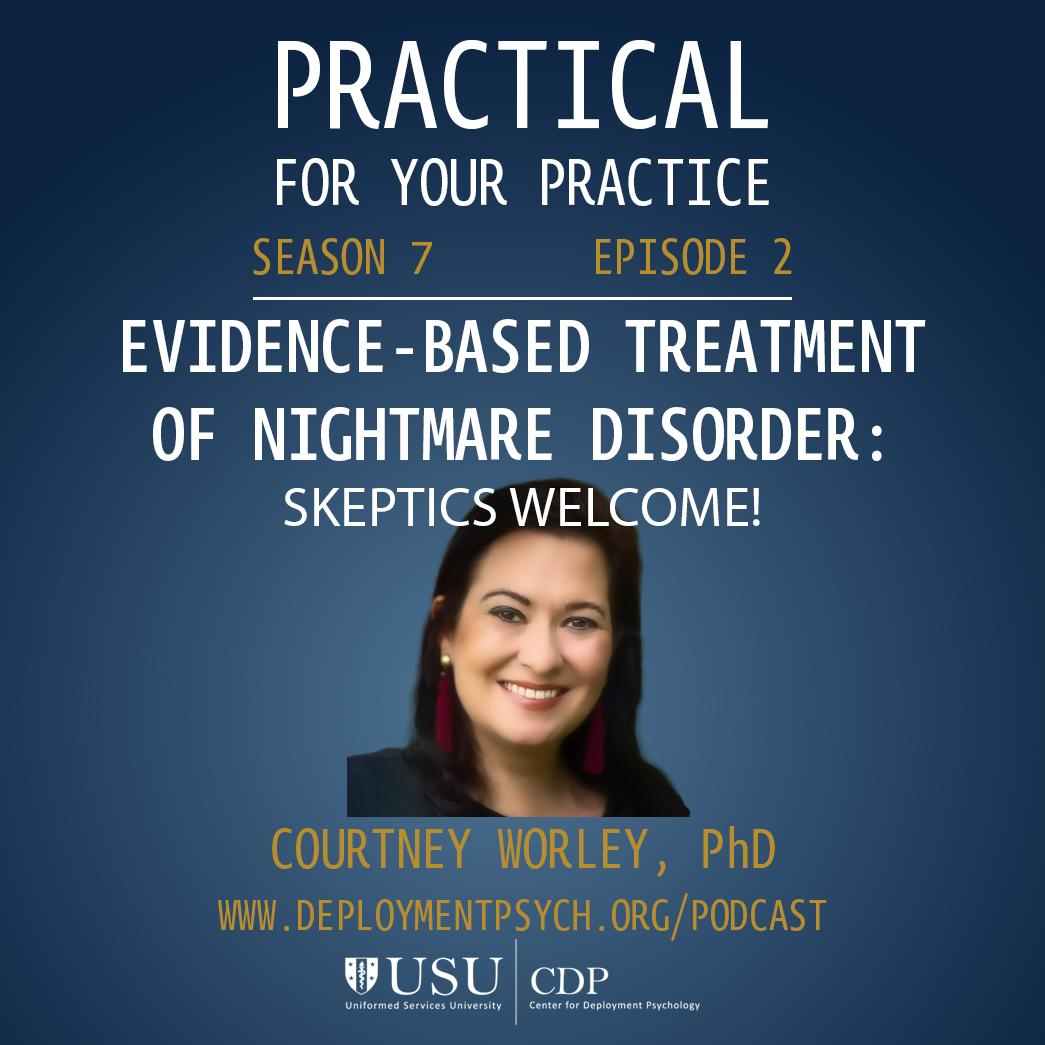 Guest: Dr. Courtney Worley
Guest: Dr. Courtney Worley
We often think of nightmares as a symptom that occurs as part of another condition, like PTSD or depression. But nightmares can be frequent and disruptive enough that they require their own clinical focus. We currently have three gold standard options for treatment: Imagery Rehearsal Therapy; Exposure, Relaxation, and Rescription Therapy; and Lucid Dreaming. Our guest today, Dr. Courtney Worley, introduces us to the diagnosis of Nightmare Disorder, explains why it deserves its own attention, and gives us an overview of the most effective treatments. Join us for a discussion that appeals to sleep nerds and healthy skeptics alike.
Listen to Episode 1, Season 7: Unboxing Season Seven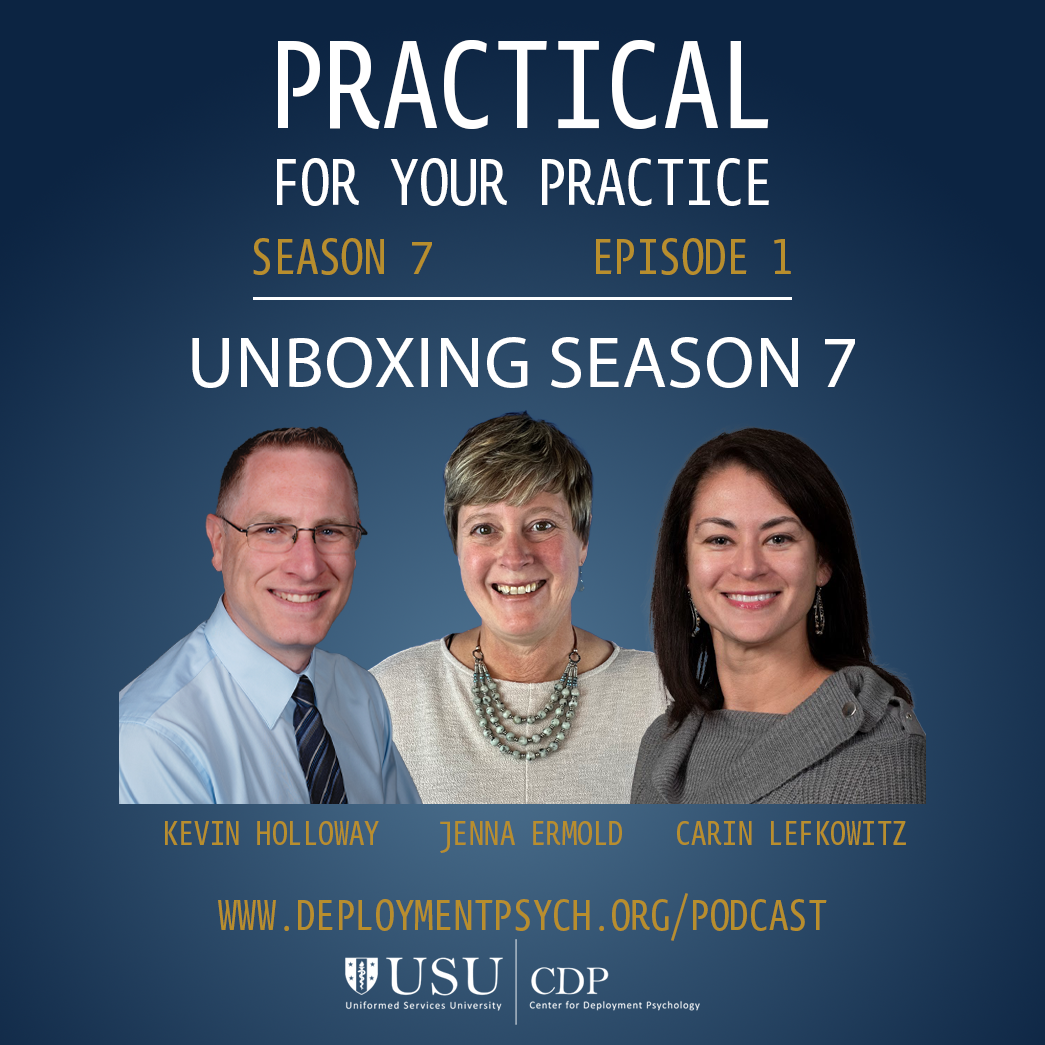 Hosts: Drs. Jenna Ermold, Kevin Holloway & Carin Lefkowitz
Hosts: Drs. Jenna Ermold, Kevin Holloway & Carin Lefkowitz
Welcome back to Practical for Your Practice! In our Season 7 kickoff, hosts Drs. Jenna Ermold, Kevin Holloway, and Carin Lefkowitz set the stage for a new theme: The Seven Sins of Evidence-Based Practice. Inspired by Carin’s favorite film Seven, this season dives into the common pitfalls clinicians face when delivering EBPs and how we can learn, grow, and support each other through them.
Practical for Your Practice, Season 6
Listen to Episode 12, Season 6: Obstructive Sleep Apnea - Do Mental Health Providers Have a Role? 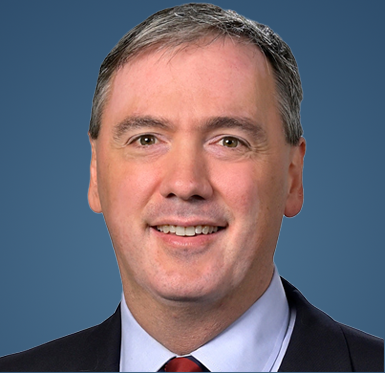 Guest: Dr. Phil Gehrman
Guest: Dr. Phil Gehrman
Obstructive sleep apnea (OSA) is an increasingly common diagnosis. Yet most behavioral health providers are unaware that they can play a role in both the assessment and treatment of OSA in their patients. Today we’re joined by an expert in the subfield of sleep psychology, Dr. Phil Gehrman. He shares basic information about what OSA is, how providers can effectively screen for it, and how they can facilitate treatment for this dangerous condition. Despite what you might have heard before, Dr. Gehrman posits that behavioral health providers can play “a huge potential role that really is untapped.”
Listen to Episode 11, Season 6: Opening Doors to Processing Emotions (PE)  Guest: Dr. Sheila Rauch
Guest: Dr. Sheila Rauch
Evidence-based psychotherapies for post-traumatic stress disorder (PTSD), such as Prolonged Exposure and Cognitive Processing Therapy, are the best tools we have to treat PTSD for most people–at least as long as those in need are able to access these therapies. A number of barriers may exist, such as availability of trained therapists, insurance coverage (or lack thereof), or even life stressors standing in the way. During the COVID-19 pandemic, trauma exposure exploded exponentially while at the same time access to care due to lockdowns and social distancing was severely diminished.
Listen to Episode 10, Season 6: Math, Science, and Emotional Health: CBT for Suicide Prevention at School  Guest: Allison Hannah, MSW, LCSW
Guest: Allison Hannah, MSW, LCSW
Suicide is currently the second leading cause of death for youth aged 10 through 14. It’s a horrifying fact that has spurred providers into action. One of those providers is our guest on today’s episode. Allison Hannah, MSW, LCSW, has delivered evidence-based suicide prevention interventions to youth, from elementary school-aged children to teens. Listen in as she provides us with the basics of CBT for Suicide Prevention and ways to adapt it effectively for youth. Her experiences inspire hope for providers, clients and families.
Listen to Episode 9, Season 6: Not a Fair Fight - Digital Media Addiction in Youth 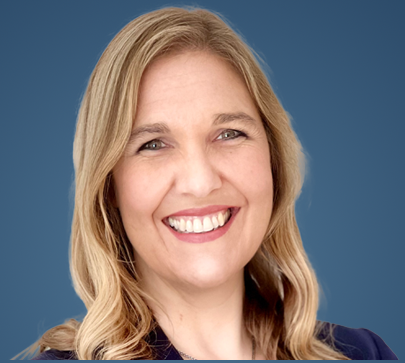 Guest: Dr. Amanda Giordano
Guest: Dr. Amanda Giordano
Most digital media is designed to be addictive, and young brains are especially susceptible. Successful digital media content is stimulating, engaging, and targets the brain’s natural reward centers. This creates an unfair advantage over young brains, which have not yet fully developed their executive functioning. In today’s episode, Dr. Amanda Giordano introduces us to the “Four C’s” model of addiction, healthy vs unhealthy engagement with digital media, and interventions for youth and their families. She also shares who has her “six” and Actionable Intel to hone your skills.
Listen to Episode 8, Season 6: AI and Mental Health: Why Should I Care?! 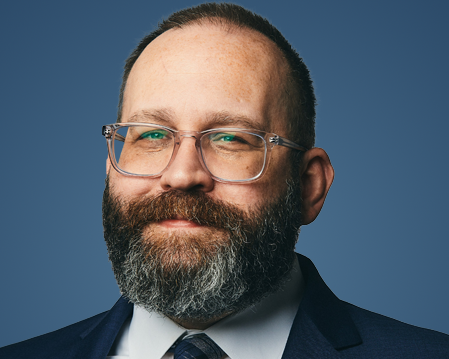 Guest: Dr. David Cooper
Guest: Dr. David Cooper
If you’ve been side-eyeing the rise of AI in mental health, this episode of Practical for Your Practice is one you don’t want to miss. Dr. David Cooper, Executive Director of Therapists in Tech and member of the APA's Mobile Health Tech Advisory Committee joins us for a down-to-earth and engaging deep dive into what AI actually means for therapists. Spoiler: it’s not Skynet. Dr. Cooper breaks down the basics of generative AI, including what GPT really stands for and why therapists shouldn’t fear it—but should understand it. He explains how AI is being used in the behavioral health field with a focus on doing so ethically.
Listen to Episode 7, Season 6: It's Not What You're Doing. It's Why You're Doing It: Complex Cases and EBPs  Guest: Dr. Aaron P. Brinen
Guest: Dr. Aaron P. Brinen
Complex cases… The rule? Or the exception? In this episode of Practical for Your Practice, we sit down with Dr. Aaron Brinen, who argues that complexity is often the norm when it comes to client cases. Dr. Brinen shares valuable insights on how to effectively serve clients with complex issues, emphasizing the importance of a thorough case formulation. We dive deep into how this process can lead to more effective strategies for change.
Tune in to learn why taking the time to understand a client’s “perpetual motion machine” can enhance your evidence-based practice and lead to better outcomes.
Listen to Episode 6, Season 6: You Are NOT Unacceptable: Traumatic Invalidation and PTSD  Guest: Dr. Robin Brody
Guest: Dr. Robin Brody
Traumatic invalidation, a powerful and often misunderstood concept, occurs when a person’s emotions, behaviors, or identity are repeatedly dismissed, belittled, or rejected by important people in their lives. It can manifest as emotional neglect, severe criticism, unequal treatment, or outright denial of one’s reality. In this P4P episode, we sit down with Dr. Robin Brody who shares her insights on how traumatic invalidation can directly challenge a person’s sense of self-worth and belonging in the world and can play a significant role in the development and maintenance of PTSD.
Listen to Episode 5, Season 6: Getting All Sides of the Story: Responsible Use of Collateral Information in EBPs 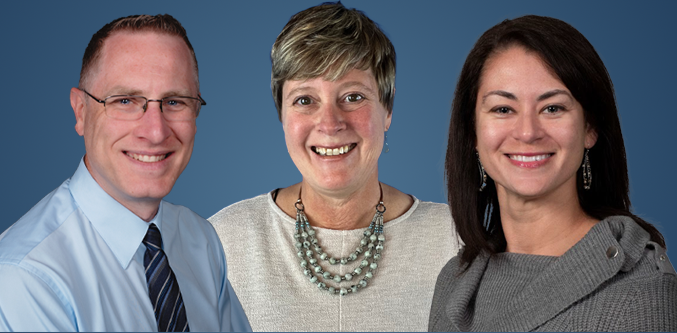 Guest: Drs. Holloway, Ermold, Lefkowitz
Guest: Drs. Holloway, Ermold, Lefkowitz
No one knows better than our clients what is going on in their world - their stressors, symptoms, triumphs, values, goals… but sometimes it can also be helpful to hear additional perspectives from others in our client’s world. In this episode the P4P hosts discuss the potential relevance of collateral information in assessment, case conceptualization and treatment planning.
Listen to Episode 4, Season 6: Confident Connection and Telehealth Suicide Prevention  Guest: Dr. Kristyn Heins
Guest: Dr. Kristyn Heins
For many of us, the idea of assessing and responding to suicide risk via telehealth seems overwhelming. As Jenna says, “the stakes are just a little higher.” But that’s all the more reason to become confident in the process; our patients deserve access to the best possible care, after all. In this episode, Dr. Kristyn Heins addresses common provider concerns about treating high risk patients over telehealth. Her common sense suggestions can reduce our collective anxiety and help us build our confidence in suicide prevention strategies.
Listen to Episode 3, Season 6: Look Beyond the Obvious! Exploring the Complexity of Military Culture, Identity and Mental Health  Guest: Ms. Carolyn Hewer
Guest: Ms. Carolyn Hewer
In this episode we have the honor of sitting down with Australian researcher, Ms. Carolyn Heward, lead author of “A Scoping Review of Military Culture, Military Identity, and Mental Health Outcomes in Military Personnel”. Listen in as we discuss the complexity of military culture's impact on military identity and its effect on mental health. We’ll dig into the Military Identity Model (MIM) and types of identities such as loyal, warrior, hidden and disrupted. But most importantly we’ll consider the clinical benefits of including military identity into case formulation, treatment planning and EBP work. As Heward says “identity work is clinical work” and we couldn’t agree more.
Listen to Episode 2, Season 6: Don’t Attach Your Sleep Tracker to the Ceiling Fan (and Other Helpful Tips from Insomnia Experts)  Guest: Dr. Diana Dolan
Guest: Dr. Diana Dolan
Sleep trackers - what are they good for? While they may give you an entertaining look at your sleep health, they can complicate treatment of sleep disorders. Our guest today, Dr. Diana Dolan, returns to P4P to provide a balanced view on consumer wearables and their impact on sleep assessment and treatment. Technology has evolved in the past few years, and so have our suggestions for how to work with patients who love their sleep trackers. How can we capitalize on our patients’ enthusiasm for better sleep? Tune in to find out.
Listen to Episode 1, Season 6: Who's Got Your Six?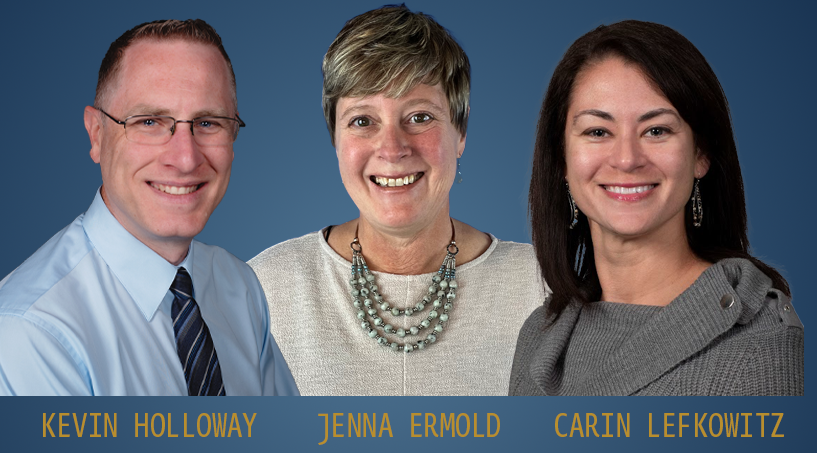 Guests: Drs. Ermold, Holloway & Lefkowitz
Guests: Drs. Ermold, Holloway & Lefkowitz
New year! New season! New look! AND new theme! Our hosts kick off season six of the P4P podcast introducing the theme, “Who’s Got Your Six?” (see what we did there?), and talk about the importance of cultivating our own support systems and people. Each host shares a story about someone who has (and has had) their “six”. As mental health providers, we all need and deserve someone to have our backs. So how do we cultivate these supportive relationships? Check out this episode! And as always, thank you listeners for having OUR six.
Practical for Your Practice, Season 5
Practical for Your Practice, Season 4
Practical for Your Practice, Season 3
This podcast is produced by the Center for Deployment Psychology at the Uniformed Services University of the Health Sciences. The views expressed are those of the speakers and do not necessarily reflect the opinions of the Uniformed Services University, the Department of Defense, or the US Government. In addition, reference to any specific company, products, processes, or services does not necessarily constitute or imply endorsement by the Uniformed Services University, the Department of Defense, or the US Government.
Practical for Your Practice, Season 1

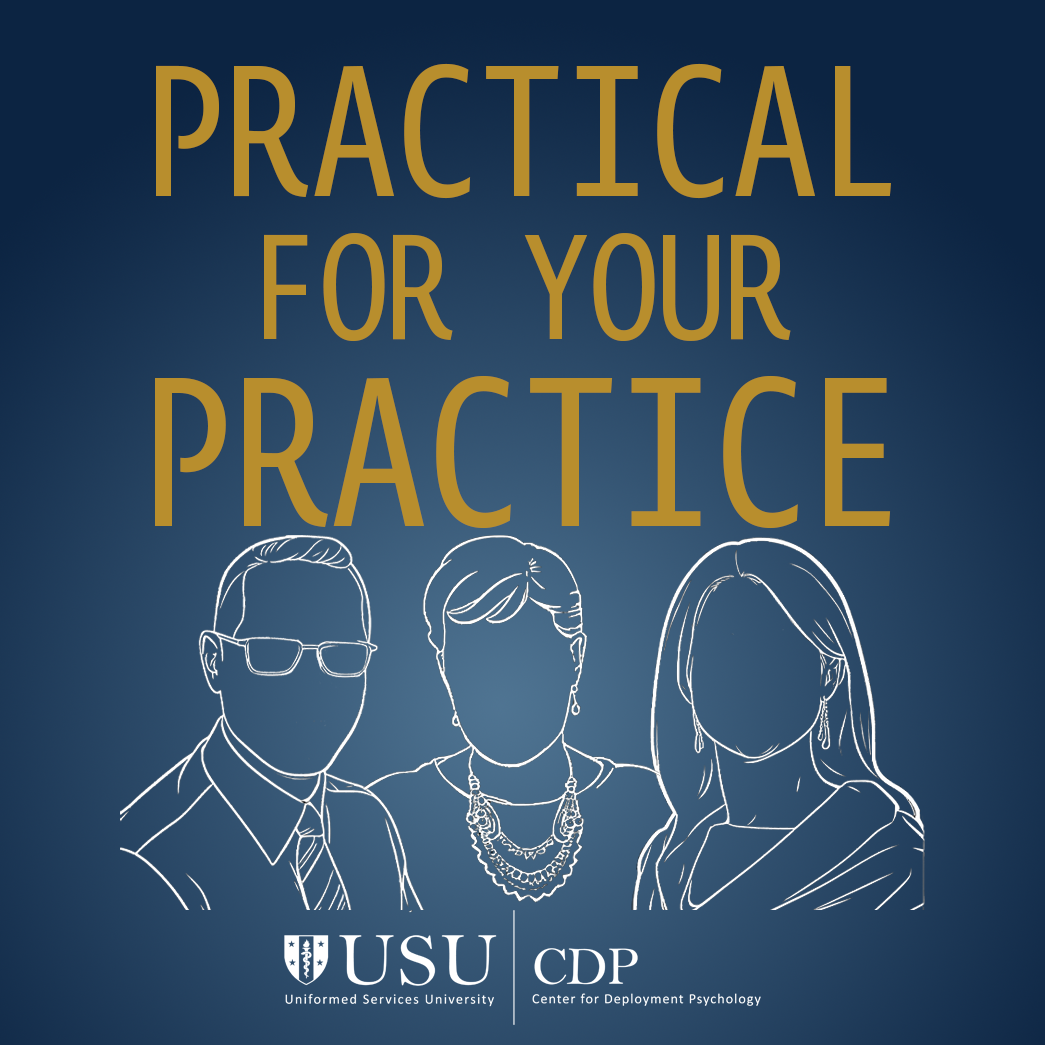





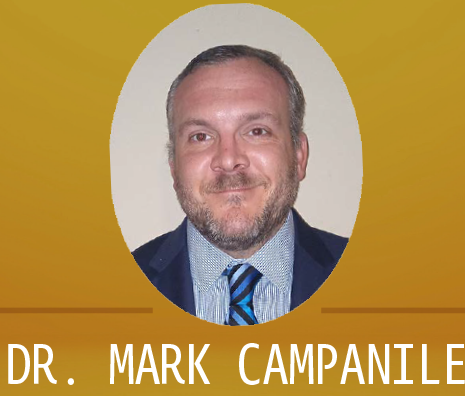
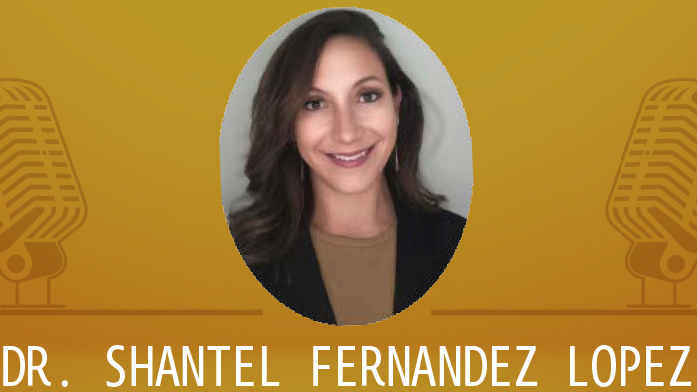

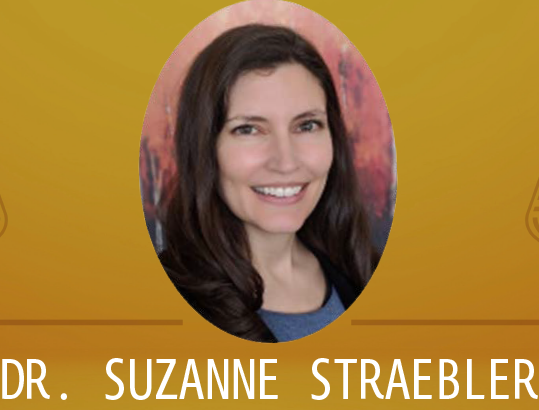
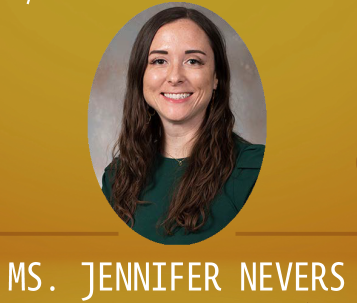

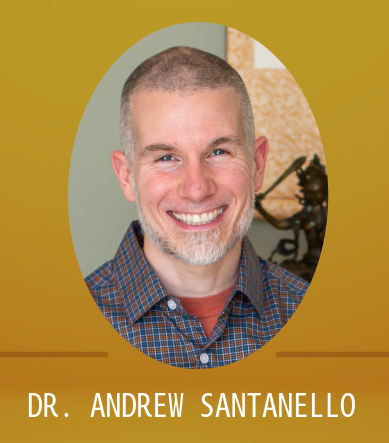
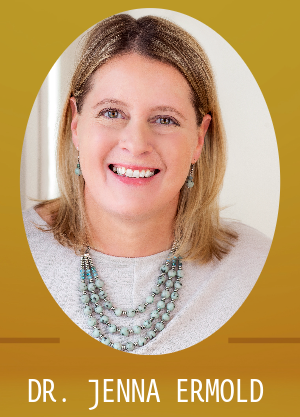 Listen to Episode 1, Season 5:
Listen to Episode 1, Season 5: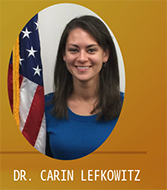 Listen to Episode 12, Season 4:
Listen to Episode 12, Season 4: Listen to Episode 11, Season 4:
Listen to Episode 11, Season 4: Listen to Episode 10, Season 4:
Listen to Episode 10, Season 4: Listen to Episode 9, Season 4:
Listen to Episode 9, Season 4: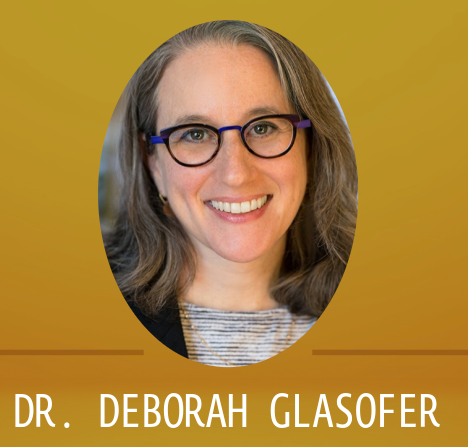 Listen to Episode 8, Season 4:
Listen to Episode 8, Season 4: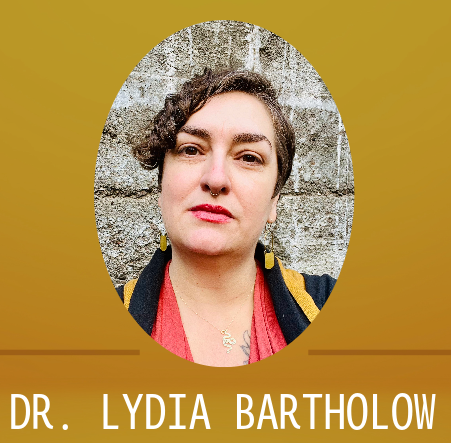 Listen to Episode 7, Season 4:
Listen to Episode 7, Season 4: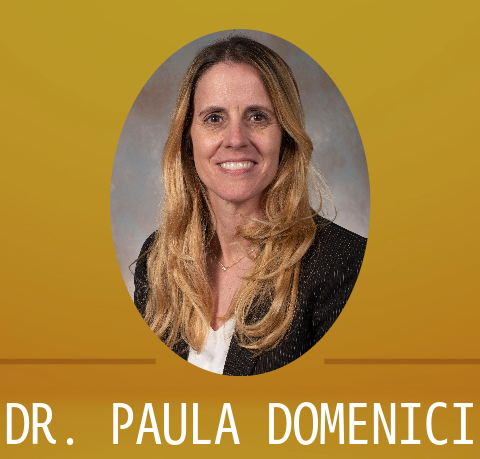 Listen to Episode 6, Season 4:
Listen to Episode 6, Season 4: Listen to Episode 5, Season 4:
Listen to Episode 5, Season 4: Listen to Episode 4, Season 4:
Listen to Episode 4, Season 4: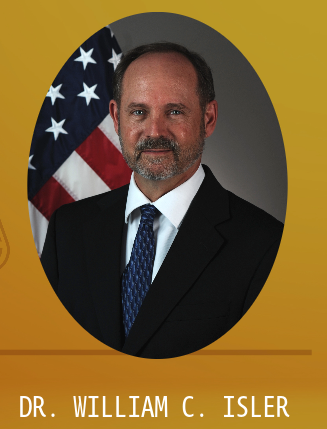 Listen to Episode 3, Season 4:
Listen to Episode 3, Season 4: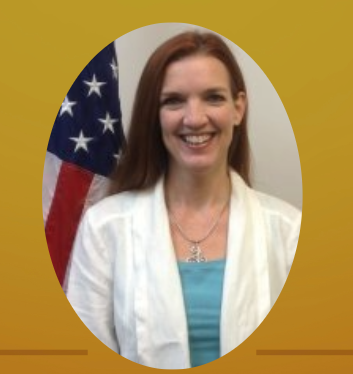 Listen to Episode 1, Season 4:
Listen to Episode 1, Season 4: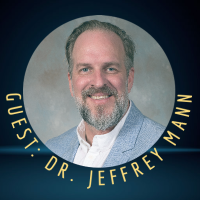 Listen to Episode 12, Season 3:
Listen to Episode 12, Season 3: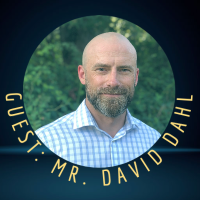 Listen to Episode 10, Season 3:
Listen to Episode 10, Season 3: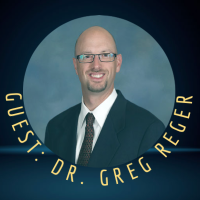 Listen to Episode 9, Season 3:
Listen to Episode 9, Season 3: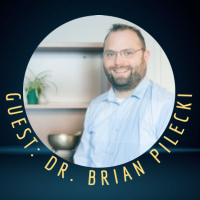 Listen to Episode 7, Season 3:
Listen to Episode 7, Season 3: Listen to Episode 6, Season 3:
Listen to Episode 6, Season 3: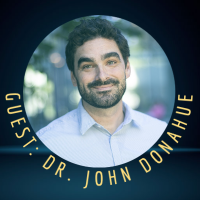 Listen to Episode 5, Season 3:
Listen to Episode 5, Season 3: Listen to Episode 4, Season 3:
Listen to Episode 4, Season 3: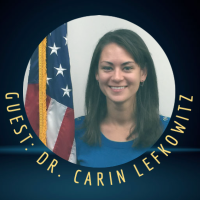 Listen to Episode 3, Season 3:
Listen to Episode 3, Season 3: Listen to Episode 2, Season 3:
Listen to Episode 2, Season 3: Listen to Episode 1, Season 3:
Listen to Episode 1, Season 3: